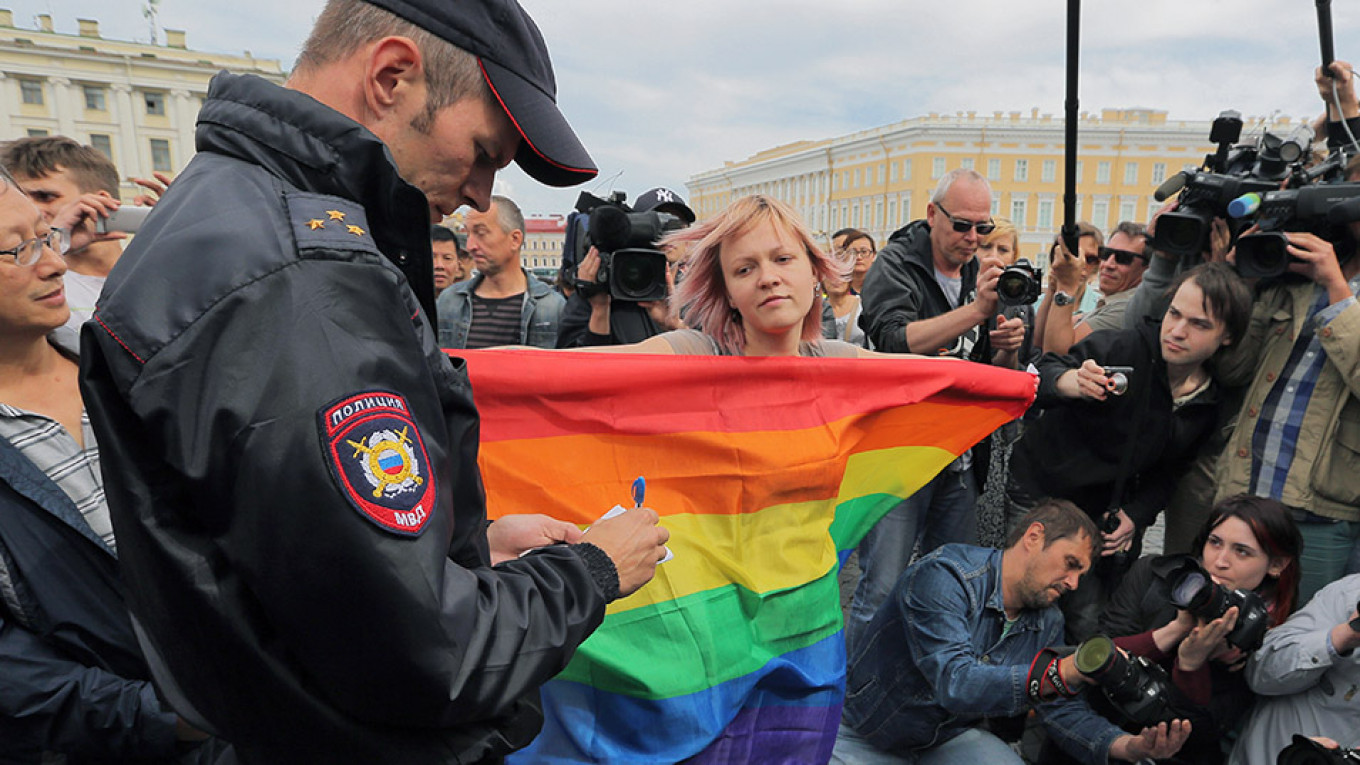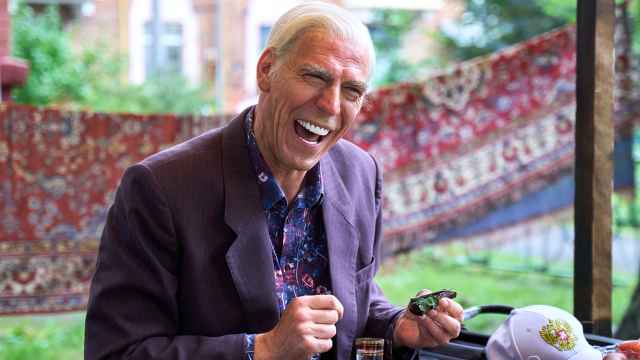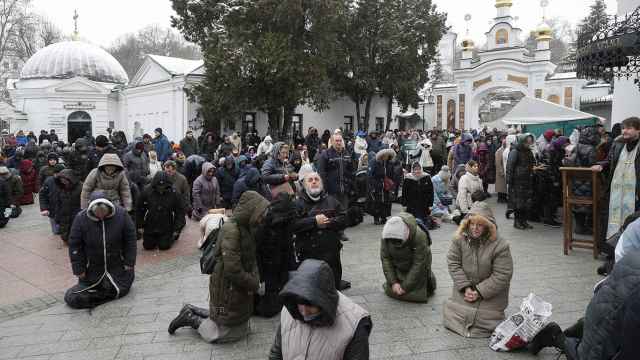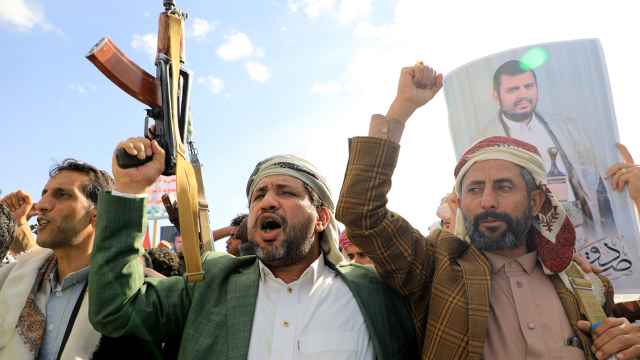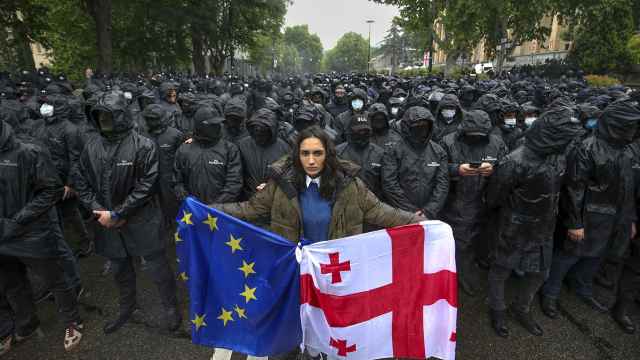It sounds like the plot for some kind of depressing arthouse movie — a three-year jail term for a transgender cancer patient from Bryansk named Michelle, who was convicted by a court for producing child pornography after drawing manga-style pictures for social networks. Since, according to Michelle’s documents, she is a man, she will be put in a male cell.
Michelle’s prison sentence is the product of the country’s pivot toward “traditional values,” initiated by Vyacheslav Volodin at the start of Vladimir Putin’s third term as president in the wake of the 2011-2012 mass anti-government Bolotnaya protests. But while state conservatism lost its purpose in the years that followed, it has not occurred to anybody to roll the policies back, and at this point it’s unclear if this is even possible.
The initial politicization of LGBT issues looks natural at first sight — any human rights struggle has a political character by default in Russia. But in Russia in the early 2010s, there was no LGBT faction among the opposition. The topic was not considered important during the Bolotnaya protests and people were interested primarily in honest elections and corruption.
At the time, the authorities had profoundly utilitarian aims. The Kremlin needed to frame the protest movement and the slogans of Bolotnaya with something that, back then, it was fashionable to call “sick.”
Along with the LGBT topic there was a lot of discussion at the time about “insulting the feelings of religious believers.”
It was the Kremlin’s goal to cement the idea in public opinion that people who had come out to protest were not only trying to achieve honest elections, but also gay parades and various kinds of anti-religious mockery.
In this way, any protest would turn into a new source of public division: people who protested against the authorities became by default adherents of the values the authorities were attacking.
No matter how much of a homophobe a typical anti-Putin demonstrator of those years might have been, in this engineered schism they were assigned the role of the most radical of LGBT lobbyists — simply because the authorities had made homophobia official policy. Everyone who was against the authorities, whether they wanted it or not, was seen as an LGBT activist.
The side effect of state homophobia was that the LGBT question acquired the same significance as critical art and media.
Even Bryansk manga, which can put you behind bars, is becoming something akin to the “Gulag Archipelago” of the 1970s, a trigger that can be a blow against the system.
No matter how artificial state homophobia was in the beginning, the mechanisms have all been fully deployed. When the Russian state declares something nonsensical to be a threat, this nonsense becomes very serious indeed.
The special, completely political nature of Michelle’s Bryansk manga drawings meant that criminal prosecution was inevitable, but it’s highly unlikely that the political spin doctors of the early 2010s had cases like this in mind.
Now the arena for confrontation even includes festival screenings. The Russian film “Outlaw” by Ksenia Ratushnaya had its world premiere at a recent film festival in Tallinn rather than in Russia. Dubbed Russia’s “first transgender movie,” it focuses on a teenage love triangle that includes a gay schoolboy, and also features a Soviet general who is in love with a transgender dancer.
A drama like this, innocent even by the standards of 2010s Russia, today becomes a clear political statement, though one devoid of an addressee, since the Russian state itself forgot long ago why it began to target so-called “gay propaganda,” or what threat it believed it posed.
Perhaps one day it will reflect upon this and, as in the recent case with the decriminalization of the swastika, reject at least the most odious and unnecessary measures for the “protection of children from information that harms their health and development.” By then, however, Michelle will probably have been killed in jail.
This article was first published by Republic
A Message from The Moscow Times:
Dear readers,
We are facing unprecedented challenges. Russia's Prosecutor General's Office has designated The Moscow Times as an "undesirable" organization, criminalizing our work and putting our staff at risk of prosecution. This follows our earlier unjust labeling as a "foreign agent."
These actions are direct attempts to silence independent journalism in Russia. The authorities claim our work "discredits the decisions of the Russian leadership." We see things differently: we strive to provide accurate, unbiased reporting on Russia.
We, the journalists of The Moscow Times, refuse to be silenced. But to continue our work, we need your help.
Your support, no matter how small, makes a world of difference. If you can, please support us monthly starting from just $2. It's quick to set up, and every contribution makes a significant impact.
By supporting The Moscow Times, you're defending open, independent journalism in the face of repression. Thank you for standing with us.
Remind me later.



